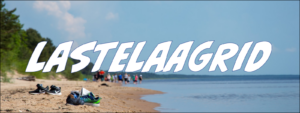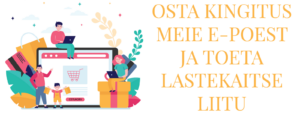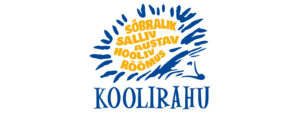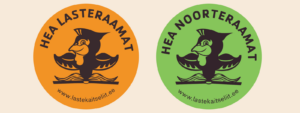Innovative activities through years
18. January 2016
2016
- In focus – Bullying free kindergarten and school
- Additional report on the UN convention on the right of the Child
- Children rights program in Dark Nights Movie Festival in co-operation with Ministry of Justice and Children Ombudsman
- Continuous work as European Internet safety Center in Estonia
2015
- In focus – Bullying free kindergarten and school
- Lobby work against physical punishment of children
- Additional report on the UN convention on the right of the Child
2014
- In focus – Bullying free kindergarten and school
- Children rights program in Dark Nights Movie Festival in co-operation with Ministry of Justice and Children Ombudsman
- Continuous work as European Internet safety Center in Estonia
2013
- In focus – children in in-family violence and preventing it
- Co-operation with Estonian Lawyers Chamber
- Lectures for Social workers – “On the same side, children´s side”
2012
- In focus – preparation of new Child protection law in Estonia
- Children rights program in Dark Nights Movie Festival in co-operation with Ministry of Justice and Children Ombudsman
- Youth Exchange “Man in the Morror” in Kohila for 65 children with lesser opportunities from all over Europe
2011
- In focus – affect politics in Estonia and in Europe
- Giving out the “Nice and Easy” (“Tasa ja Targu”) handbook in association with Finnish Central Union for Child Welfare
- The project “Bullying free kindergarten” has received very warm welcome and is moving to be put in to all of the kindergartens in Estonia
2010
- In focus – relieving child poverty – children’s camps supported by AEFi for 724 children from families with subsistence difficulties
- Internet safety – the beginning of the European Commission’s project „Safer Internet“ (Targalt Internetis)
- Violence-free upbringing – the beginning of the project „Kindergarten free of bullying“ (Kiusamisest vaba lasteaed)
2009
- Initiatives and coordinated cooperation for creating a children’s ombudsman institution.
- Preparation of spokespersons for trusteeship work.
- Creating the tradition of acknowledging voluntary child welfare work.
- Trainings for improving basic education curriculum – including utilising the Method of Shared Concern in schools.
- Contests for supporting positive parenting and summer programs for preparing children for school.
2008
- Events for the 20th anniversary of re-creating the Union of Child Welfare, including the international conference „What a child wants“ (Mida laps tahab); the compendium of scientific articles „New times – new children“ (Uued ajad – uued lapsed); the book „A child creates the world“ (Laps loob maailma).
- Activating the Training Centre of the Union of Child Welfare and diverse trainings
- The charity concert by the Youth Assembly of the Union of Child Welfare for buying supplies for the Paldiski youth centre.
2007
- National competitive game for school youth about children’s rights – „Do I know?“ (Kas mina tean?)
- Informing, training for raising awareness about children’s rights in a hospital.
- Propaganda and activating a family supportive person service in local municipalities.
- A wider utilisation of the Method of Shared Concern as an intervention method for school bullying.
2006
- Social theatre
- TV-show regarding the campaign „Let’s grow together“ (Kasvame koos)
- Raising fathers’ role in the conference „Our child’s problems. You are born a man, you become a father“ (Meie lapse mured. Meheks sünnitakse, isaks saadakse).
- Project „Book comes to visit“ (Raamat tuleb külla) for increasing children’s interest in reading.
- Family media ( Peremeedia)
2005
- Creation of regional centres of Union of Child Welfare.
- Baltic cooperation for assuring children’s rights in Baltic countries.
- Creation of the Union of Child Welfare concept of children’s participation and involving.
- IFCW yearly conference „Children in poverty“ (Lapsed vaesuses).
2004
- The Union of Child Welfare’s Children’s Camps LLC was established.
- Joining with the European child welfare organisation EuroChild.
- Beginning of trainings of organisation’s work for members.
- Charity project „Notice the Child“ (Märka last) for the support of care-families.
2003
- 15 years from re-creating the Union for Child Welfare – books „CHILDHOOD – Child in Estonian art“ (LAPSEPÕLV – Laps eesti kunstis) and „Union of Child Welfare – history and today“ (Lastekaitse Liit – ajalugu ja tänane päev).
- Information centre Märka Last.
- Union’s magazine “Märka Last”.
- Community work (project „Prevention of children’s social diversion in community’s networking“ (Laste sotsiaalse tõrjutuse ennetamine kogukonna võrgustikutöös).
2002
- Child protection strategy
- The complementary report for the UN child rights convention
- The gathering of work- and holiday camps in five counties.
- The Union of Child Welfare sub-foundation was created to The Estonian National Culture Foundation to support talented students, who are in basic or high school.
2001
- Inquiry about school violence.
- Development of family services.
2000
- The concept of family work.
- Strengthening the cooperation with the European child welfare network.
1999
- Training of the volunteers in child welfare work.
- Activity program of the Union of Child Welfare until the year 2005.
- Adding the topic of children’s rights in the basic education curriculum.
- Children’s work- and holiday camps.
1998
- Beginning of the drug prevention work in schools.
- Preparation of school teachers for child welfare work.
- A youth problem TV-programme.
- Beginning of creating child day centres.
1997
- Beginning of work with street children’s problem.
- Beginning of issuing a children’s magazine.
1996
- The creation of the basis for children’s and youngsters’ counselling network.
- Systematic work with youth delinquency.
1995
- Organising children’s summer holidays.
- Informing children and their parents of Children’s rights convention.
- Beginning of creating a child welfare cooperation network.
- Creating traditions for children’s events in the organisation.
1994
- Beginning of developing a care- and foster families movement.
1993
- Beginning of work with crisis families.
1992
- Beginning of prevention work about children’s violence.
- The acceptance of child protection law.
1991
- Estonian Republic joined the children’s rights convention.
1990
- The topic of violence against children was raised in the conference „Out child’s problems – society without violence“ (Meie lapse mured – ühiskond ilma vägivallata).
1989
- Providing food and material aid for children and families.
- Beginning of a wider international cooperation (IFCW, CCF).
1988
- The re-creation of Estonian Union for Child Welfare on October 2







